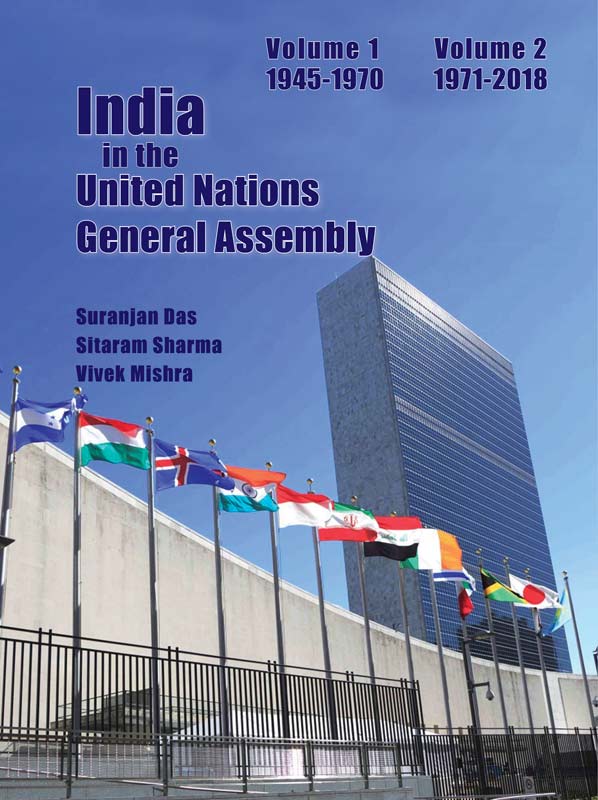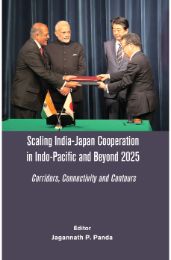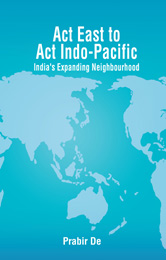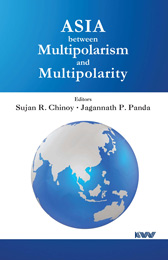Subjects
India in the United Nations General Assembly
(Volume 1 1945-1970)
(Volume 2 1971-2018)
Suranjan Das, Sitaram Sharma and Vivek Mishra
This two volume compendium recaptures India’s association with the United Nations Organization by bringing together the speeches of the leaders of the country’s delegations to the sessions of the United Nations General Assembly from 1946 to 2018. The Introduction to the volumes uses these speeches to delineate India’s steadfast faith in the United Nations and to identify the contours of India’s foreign policy, especially its attitude to the challenges for the stability of international order and the issues which are critical to make the world a better place to live in. The present documentation exercise has resulted in the publication of a crucial source-material for future studies on India’s engagement with the United Nations during the past seventy years and beyond. The volumes should attract the attention of the reading public as well as practitioners of Indian diplomacy. They are the outcome of a Government of West Bengal funded collaborative research project of Netaji Institute For Asian Studies, Kolkata, and West Bengal Federation of United Nations Association.
The first part of this two-volume compendium ended with the Address by the Prime Minister Mrs. Indira Gandhi to the 25th Session held on 23 October 1970. The second part starts with the 26th Session that took place on 27 September 1971 and closes with the United Nations General Assembly session of 2018. This textual demarcation, undertaken primarily to make each volume of a handy size, does not undermine the element of continuity evident in India’s stand on issues ranging from apartheid, disarmament, universal representation of countries in the United Nations to the socio-economic development of the Third World. However, India’s military success against Pakistan in 1971, leading to the emergence of Bangladesh, did mark the beginning of a new phase in India’s leadership in South Asia. The post-1971 years also marked a shift in India’s role in the preservation of international stability with its emphasis on the Declaration of the Strengthening of International Security adopted by the United Nations General Assembly, its support for Strategic Arms Limitation Talks and the Strategic Arms Reduction Treaties between the USA and the erstwhile USSR, its advocacy for maritime security, and its enthusiastic participation in the move to ban chemical and biological weapons. The second volume thus coincides with the period of assertion of India’s authority in South Asia, the expansion of its global concerns, and its bid to interweave South Asian regional concerns with that of the world.


 Political Science
Political Science



